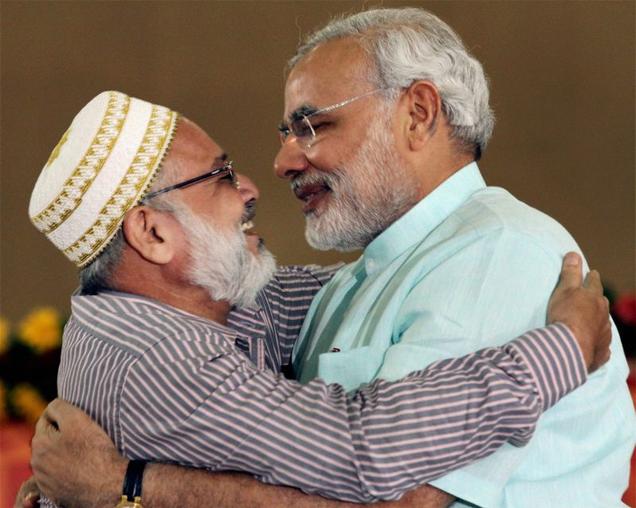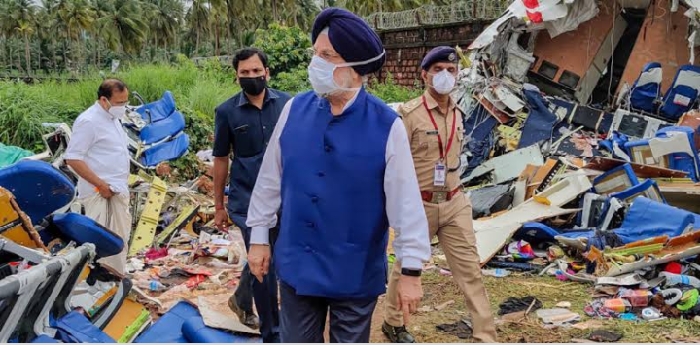
Ahmedabad, May 10: The Supreme Court-appointed Special Investigation Team has totally disagreed with the observations of amicus curiae Raju Ramachandran, and said no case can be made out against Gujarat Chief Minister Narendra Modi in connection with the 2002 communal riots under any of the Sections of the Indian Penal Code mentioned by him.
Mr. Ramachandran, in his report, which formed part of the SIT closure report submitted in the Ahmedabad metropolitan court, observed that prima facie offences under Sections 153 A (1)(a) and (b), 153 B (1)(c), 166 and 505 (2) of the IPC could be made out against Mr. Modi for his alleged “instructions” to police officers to “go soft on the Hindu rioters” and his subsequent role in handling the riots and alleged offensive media statements that could have contributed to instigating violence.
Giving point-by-point answers to all observations made by the amicus curiae after investigating the charges, as directed by the Supreme Court, the SIT said: “The offences under the aforesaid sections of law are not made out against Mr. Modi.” The report signed by the investigation officer in the Zakia Jafri petition case, Deputy Commissioner of Police Himanshu Shukla, said, “in the light of the aforesaid facts, a closure report in being submitted for favour of perusal and orders.”
(Ms. Jafri, wife of the slain former Congress MP Ahesan Jafri, levelled serious charges against Mr. Modi and 62 others in connection with the communal riots.)
The SIT dismissed as “false and fabricated documents” two “fax messages” claimed to have been sent by the suspended IPS officer Sanjiv Bhatt, who was then Deputy Commissioner in the State intelligence branch, to the Chief Minister and Minister of State for Home Gordhan Jhadafiya, with copies to the Ahmedabad Police Commissioner, the State police control room and others, alerting them about the developing communal situation.
The “fax messages,” which claimed that the Chief Minister was informed in advance of the tension building up in Gulberg Society and that the city Police Commissioner was informed of the need for advanced preparations for possible communal repercussions in view of the government's decision to bring the bodies of the victims of the Godhra train carnage to Ahmedabad, were cited as examples of “dereliction of duty” on the part of the Chief Minister, his Cabinet colleagues and the senior police officers.
Concocted fax messages
The SIT found that no such fax messages ever existed and that these were concocted by Mr. Bhatt at a much later stage and the signatures of his superior officers were forged. Neither those claimed to be recipients nor the purported senders in the State or city police control rooms or the control room of the Home Ministry remembered anything about receiving or sending any such message. Office records did not show the existence of any such message and there also was no mention of the numbering of these messages in the subsequent official messages, which normally was the practice.
The SIT report pointed out that Mr. Bhatt himself did not mention about the existence of these messages in any of the affidavits or statements he had filed before numerous authorities all these years. For the first time, he produced a “copy” of the messages before the G. T. Nanavati-Akshay Mehta Judicial Enquiry Commission in December last and subsequently before the SIT in January this year.
Pointing out that Mr. Bhatt did not mention about the fax messages when SIT official A. K. Malhotra questioned him in connection with the Zakia Jafri petition in 2009, nor during the investigation by Mr Shukla in 2010, the SIT report said: “The oral and documentary evidence available on record would therefore conclusively prove that these fax messages now produced by Mr. Bhatt have been fabricated subsequently with an ulterior motive. No reliance can, therefore, be placed upon both these fax messages.” The SIT virtually exonerated the then Police Commissioner, P. C. Pande, his deputies M. K. Tandon and P. B. Gondia and some other police officers of the charge of dereliction of duty, and said the investigation proved that they had tried to curb the riots to the best of their ability given the limited resources available at their command to deal with the rapidly deteriorating situation. When the police arrived at any scene of riot, “the violent mobs hid themselves in lanes and bylanes and regrouped and resumed violence” as soon as the police left to attend another complaint. The SIT said it was not possible to withdraw the entire police force from the known communally sensitive areas for deployment in areas like Gulberg Society or Naroda-Patiya which had no communal history in the past.
Appreciation for Pande's role
The SIT appreciated the role played by Mr. Pande in dismissing a mob which was attempting to set fire to a dargah adjacent to the Police Commissioner's office. It pointed out that Mr. Pande heard some noise when he was in the office in the afternoon of February 28, 2002, and came to know that a mob was trying to vandalise the dargah. With the available police force by then dispatched to Gulberg Society, he took only an armed guard and succeeded in chasing away the violent mob and saved the dargah.
The SIT report, giving details of the roles played by different police officers and how they attempted to handle the situation, said there was no indication that the police were given any instruction from the higher-ups not to act or leave the affected areas to the mercy of the riotous mobs.
About the observation by the amicus curiae that the then Vishwa Hindu Parishad State general secretary Jaideep Patel being “handed over” bodies of the train carnage victims for transport to Ahmedabad was indicative of an instruction having come from “somebody very high,” the SIT pointed out that all through the journey by road from Godhra the five trucks which carried the bodies were accompanied by the police officers concerned and handed over to the police officers in charge at the Sola civil hospital in Ahmedabad. As the bodies were those of VHP kar sevaks, Mr Patel was allowed to accompany the police during the journey. The then Godhra mamlatdar and executive magistrate, M. L. Nalvaya, “erroneously” prepared the handing over papers in the name of Mr. Patel, for which the SIT recommended departmental action against him. But there was nothing to show that Mr. Modi had ordered the “handing over” of the bodies to Mr. Patel.
The SIT also dismissed Mr. Ramachandran's observations about “positioning of the two Cabinet Ministers at the instruction of Mr. Modi” in the State and the city police control rooms with the intention of interfering with the police functioning, and said its investigation proved that late Ashok Bhatt did not visit the city police control room except briefly on March 1 to pick up the then Defence Minister, George Fernandes, who was discussing with the City Police Commissioner deployment of the Army. The then Urban Development Minister did visit the State police headquarters in Gandhinagar for about a couple of hours on February 28, but was made to sit in an empty cabin and he never entered the control room. “There is no proof that they were either acting at the instruction of the Chief Minister or had even once interfered with the police functioning.”
Charges not substantiated
The report said the allegations of Mr. Modi making provocative statements over the media could not be substantiated. The allegation of his having told Zee TV in an interview that the Gulberg Society massacre was the “result of the provocative firing from inside” by Ahesan Jafri could not be established as the channel, despite several reminders, did not produce the CD of the recording. The second instance of The Times of India quoting him on Newton's theory of action and reaction to justify the riots as a reaction to the Godhra train carnage was also found baseless. The State Information Department promptly issued a denial that Mr. Modi did not speak to The Times of India at all and the newspaper was forced to carry the denial, though deliberately in an obscure corner, the SIT said.
It also dealt with the alleged “shoddy” handling of the post-riot situation by the government under Mr. Modi, and said action was recommended against the officers responsible for inaccurate police investigations or the alleged “political appointments” of special public prosecutors to handle the riot-related cases.






Comments
Add new comment